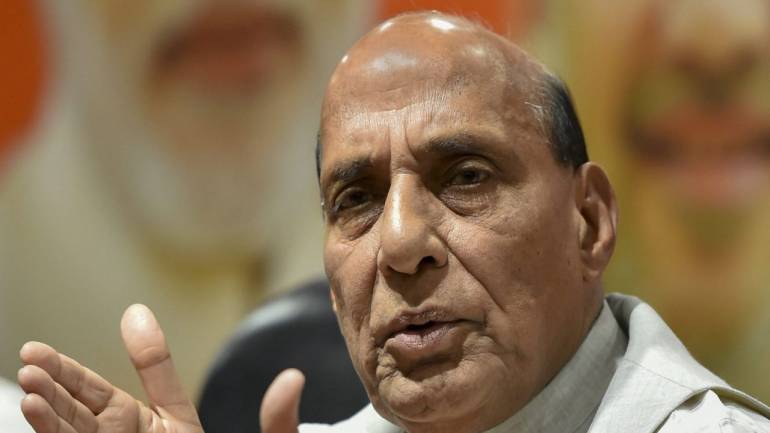New Delhi: Union Defence Minister Rajnath Singh Friday underscored that India reserves the right to change its policy of ‘No First Use’, which has been the cornerstone of India’s nuclear weapons policy for decades. The government firmly stands by its ‘No First Use’ policy but “what happens in future will depend on the circumstances,” the minister said at Pokhran in Rajasthan, the site of two nuclear tests by India.
“Pokhran is the area which witnessed Atalji (former Prime Minister Atal Bihar Vajpayee’s) firm resolve to make India a nuclear power and yet remain firmly committed to the doctrine of ‘No First Use’. It is true that till now, India has strictly adhered to the ‘No First Use’ policy. What happens in future depends on the circumstances,” Rajnath Singh told the media in Pokhran, where he attended the closing ceremony of the army scout master competition in Pokhan.
Rajnath Singh made the comment as he paid tribute to Vajpayee on his first death anniversary at Pokhran where India held nuclear tests in 1974 (under the Indira Gandhi government) and in 1998, when the Vajpayee-led NDA was in power.
The ruling BJP’s manifesto for the 2014 elections included a promise to “revise and update India’s nuclear doctrine”. But while campaigning for that election, Prime Minister Narendra Modi had dismissed a question on scrapping the ‘No First Use’ policy in an interview to a news agency. “No first use was a great initiative of Atal Bihari Vajpayee – there is no compromise on that. We are very clear. No first use is a reflection of our cultural inheritance,” he had said in April 2014, on the verge of an election in which he stormed to power.
The Defence Minister’s comment has been read by many as a well-timed warning amid tension with Pakistan, which has targeted India over the government’s move to end special status to Jammu and Kashmir under Article 370.
This is not the first time in the last few years when BJP leaders have said it was time to amend India’s position. In November 2016, then Defence Minister Manohar Parrikar – who died last year — had expressed reservations over India’s nuclear posture.
